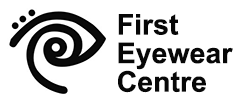Aunty, are you a doctor?
Check health of your eyes? See an optometrist first.
Health screening is designed to evaluate the health status of an individual. It may include taking a personal and family health history, and performing a physical examination, laboratory tests or radiological examination.
This may be followed by education, counselling, referral and further testing. In the process, a person may be found to have a particular disease or condition or be at a higher than normal risk of its development.
Health screening is often routine, repetitive and can be time-consuming, and it is not necessary to only have a medical doctor perform any medical consultation associated with the screening as this will inevitably increase the cost of the screening. This role can be safely performed by other healthcare professionals as long as they have the necessary training, knowledge and expertise to conduct the screening.
Many health screening programmes are conducted by trained nurses who flag out abnormal results or findings to doctors for further testing and evaluation. Another example is screening for eye diseases in the community by optometrists.
Appropriately trained optometrists with the right equipment can screen for diseases such as diabetic retinopathy, glaucoma, age-related macular degeneration and cataract, and refer individuals who need specialist consultation for further management. Using allied health professionals, instead of doctors, can decrease the cost of screening without adversely affecting the quality of the screening.
Author and photo source by Chua Yee Leen.
